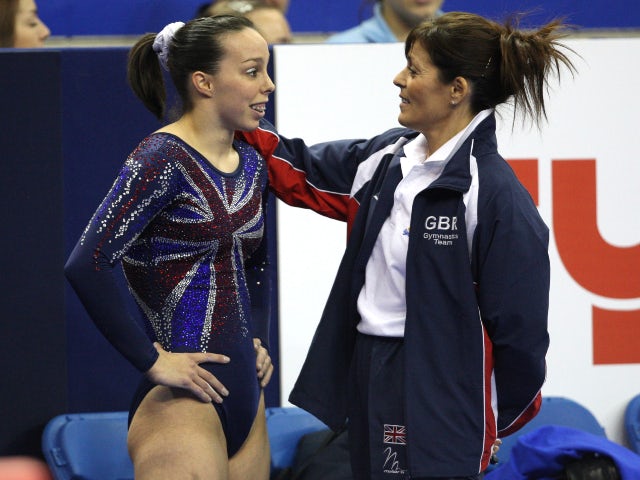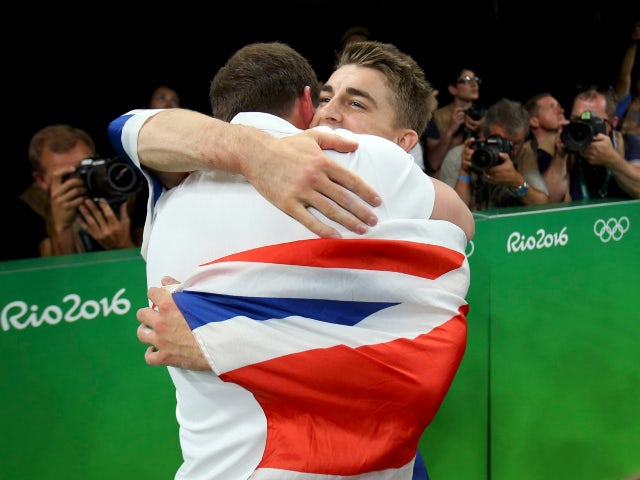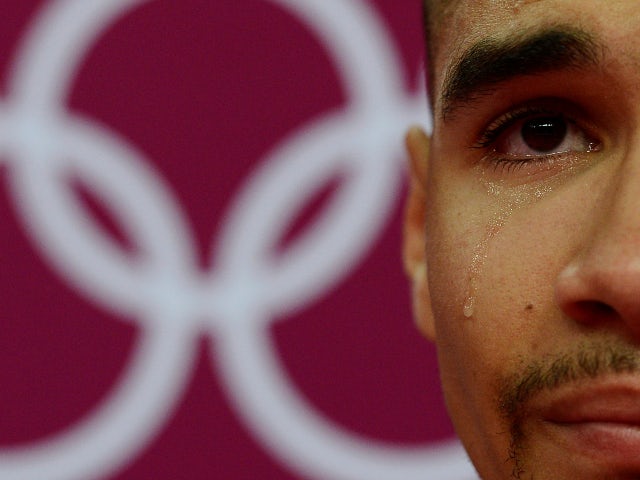The gymnastics world has been marred by controversy ever since the atrocious crimes of USA Gymnastics team doctor Larry Nassar came to light. Now, athletes in the UK are sharing their tales of woe and taking a stand against the powers-that-be.
Over the past couple of months, an alarming number of gymnasts have come forward detailing allegations of abuse and misconduct against British Gymnastics – the sport's governing body in the UK. Current and former athletes across a range of disciplines have spoken out on instances of emotional abuse, bullying, humiliation, and in some cases, homophobia.
Some of Great Britain's most celebrated superstars have lifted the lid on their experiences of a supposed culture of fear within the sport, including Rio Olympic medallists Amy Tinkler and Nile Wilson, and gymnasts have not been shy in naming and shaming those at the centre of the alleged abuse – with head national coach Amanda Reddin recently stepping aside after becoming embroiled in the scandal herself.
The allegations of mistreatment have come at a time where British gymnasts have established themselves as a force to be reckoned with on the international stage. Since the men's team of 2012 ended GB's 100-year wait for an Olympic team medal, there has been an expectation for at least one GB gymnast to make the podium on every piece of apparatus at the Europeans, Worlds and Olympics.
Beth Tweddle, Louis Smith and Max Whitlock are now household names across the UK. The Downie sisters, Becky and Ellie, can boast an incredible medal haul between them, but even their success has come at a harrowing cost. With a growing number of athletes past and present opening up on their tales of horror, it begs the question – how much of our glory will be forever overshadowed by this disturbing scandal?
 © Reuters
© Reuters
As a former GB gymnast myself, I am extremely thankful to say that I never experienced any form of the terrible abuse that athletes are bravely opening up about. There were times when I was prodded to the verge of tears as a child and pushed to train through the pain, but I do not associate those training methods with abuse – if I suffered an injury, I was tended to quickly. If I wanted to sit out, I could sit out.
Then again, the discipline of gymnastics that I excelled in did not require the monumental feats of strength and flexibility that we see in artistic. TeamGym encompasses three pieces of apparatus – a synchronised floor routine, tumbling and trampette. While the floor exercise does demand a competent level of muscular control and suppleness, the sport is essentially about who can do the craziest flips – which makes for a truly exciting spectacle for competitors and spectators alike.
Of course, that is not to say that TeamGym is immune from such allegations, and there may be athletes out there within the discipline that have a story or two to tell. However, from my own personal experience, the competitive side of TeamGym provided me with countless tales of enjoyment and the four British titles I won serve as a pleasant reminder of my 17 years as a gymnast.
Furthermore, all the coaches that I had the pleasure of working with were knowledgeable, empathetic and played a key role in my success. While the gymnast themselves must be incredibly disciplined and self-motivated to reach an elite level of competition, one can only get so far without the proper guidance and security of a qualified coach, and it only takes a split second for something to go tragically wrong in a sport as unforgiving as gymnastics.
 © Reuters
© Reuters
There can be no denying that gymnastics, in particular artistic gymnastics, is one of the most mentally and physically taxing sports in existence. The best make it look effortless - whether it's Marian Dragulescu performing his signature vault or Simone Biles nailing her triple-twisting double backflip on floor – but these are skills that take months and sometimes years to perfect before they can be risked on the biggest stage of them all.
Every time a gymnast goes upside down, their life is in peril. Participants are entrusting coaches with their safety from the moment they step foot into the gymnasium until the end of the session – sometimes a gruelling eight-hour day. The swift actions of a spotter could be the difference between an athlete dusting themselves down and going again, or suffering a career-ending and potentially life-threatening injury.
Many coaches are former elite-level gymnasts themselves. They have been there, done that, and got the commemorative hoodie. Once an athlete hangs up their leotard for the final time, they will often spend the next few years climbing the coaching qualification ladder and, touch wood, forging a reputation as a trustworthy and successful trainer who their gymnasts can talk to about any concerns in or outside of the sport.
Sadly, this is clearly not always the case knowing what we know now. And that can leave a gymnast feeling utterly hopeless without anyone supportive to turn to should something terrible occur. Parents/guardians should obviously be the first port of call, but unless they were involved in gymnastics themselves, there is only so much that loved ones can do with limited knowledge of the sport and limited access to training sessions.
 © Reuters
© Reuters
A young gymnast may come bouncing out of a session having learnt a new skill, but trying to explain to a friend or family member what a Tsukahara or a Triffus is can often prove unfruitful. In contrast, a parent may be greeted by their child leaving the gym in tears after a particularly brutal session, but this may be brushed off as character building or the classic 'no pain no gain' mentality needed to reach the top level.
From the moment you start to warm up in your first-ever recreational class, you are taught to believe that the coach always knows best. And why would an up-and-coming gymnast argue this? At the end of the day, coaches are the ones who have dedicated their lives to bolstering the country's talent pool and creating the next generation of Olympic and World champions. As Louis Smith touched upon during an Instagram Live, it is completely unheard of for an athlete to challenge their superiors lest they risk leaving their selection prospects in tatters.
In the unlikely scenario that a gymnast complains about the conduct of someone in power, the news of the allegations is sure to spread like wildfire across the gymnasium. If the complaint ends up going nowhere, the relationship between the athlete and the coach going forward will always be strained, and if the trainer in question is on the selection committee for an international event, the gymnast may as well kiss their hopes of donning the GB colours goodbye.
The courage of the gymnasts who have spoken up must be the catalyst for change within British Gymnastics if our unparalleled progress is actually going to count for something. Hopefully the brave few who have already come forward will encourage more athletes who have been wronged to open up and hold those responsible to account.
If British Gymnastics want the next generation of Olympians to carry on the legacy of our current crop of luminaries, changes have to be made before we see a wave of promising athletes being pulled out or dropping out of the sport amid this purported culture of fear.
It is evident that a significant internal revamp is needed or every single medal that our esteemed superstars have brought home will be tainted – that is if they have not already been.








